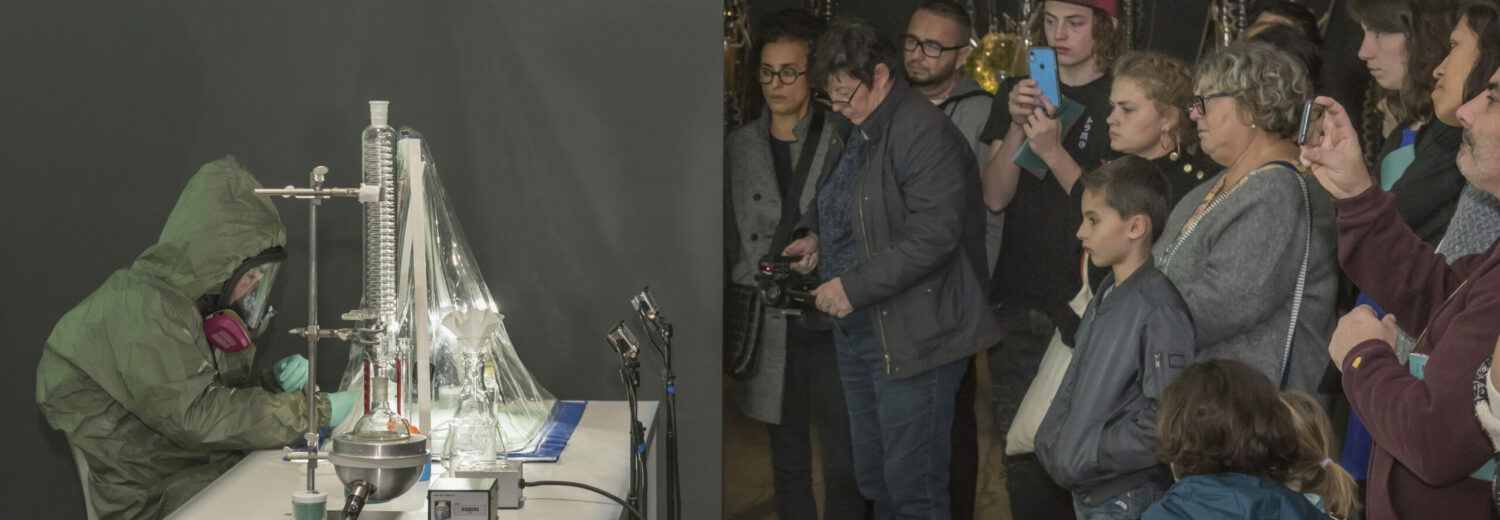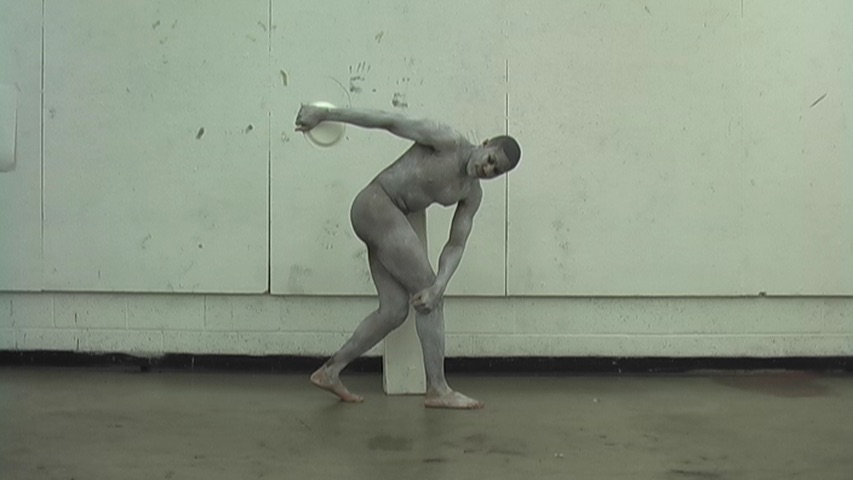Experiments in Digital Video
STA 384
TTH 11:30-2:20
Kresge Art Center, Form From Thought Laboratory (Room 5)
Fall 2018
Course Credits: 3
Instructor: Associate Professor Adam W. Brown
Office: 27B Kresge Art Center
Office Hours: Wednesday 10-noon (office or the Intermedia Lab, room 5) or by appointment
Email: brown293@msu.edu
URL: http://adamwbrown.net
Cell: 405-605-9079
Office: 517-432-2465
Teaching Assistant: Marcos Serafim
Email: serafimn@msu.edu
URL: http://serafimn.msu.domains
Course Description:
Experiments in Digital Video will offer an introduction to core skills and concepts used in digital video production, with an emphasis on art-making, conceptual thinking, and experimentation. This course will provide an introduction to the skills and concepts used in digital video production. It will include exposure to industry standard equipment, terminology, and digital video production skills in an experimental arts context. Basic research areas will include field production and electronic image gathering, documentary, lighting, basic non-linear editing, installation and alternative video content delivery. Emphasis will be placed on art-making, conceptual thinking and experimentation and focus on core generative processes of digital film, including preproduction, production, and presentation.
Students will work individually and in small teams to explore a broad range of issues involved in creation of their projects. Towards the end of the semester we will have a public screening of student work.
The course will consist of 5 projects:
1. Meeting in the Middle
2. Performative Activity
3. Time Travel
4. Historical Reenactment
5. Video as Witness
Technical Resources:
Book: Introduction to Video Production – Studio, Field and Beyond
What to Buy and Fees:
SD Card: Recommended SD Cards
Portable external hard drive formatted for the Macintosh (500 GB or more)
Evaluation and Grades:
In order to receive a grade, students must turn work in by the due date outlined in the syllabus. Work that is not turned in on time will result in a reduced grade.
Projects will be evaluated on the basis of:
• Technical and conceptual quality
• Background research
• Development throughout the course (Strive for excellence)
• Quality of documentation
• A willingness to act on criticism
Grades will be computed according to the following breakdown:
In-class participation and attendance: 15%
Reading: 5%
Lectures: 10%
Projects: 60%
Final Portfolio and Public Screening: 10%
Incompletes “I” are intended for the rare circumstance when a student who has been successful in a class has an unexpected event occur shortly before the end of the class. I will not consider giving a student a grade of “I” unless the following three conditions have been met.
1) It is within two weeks of the end of the semester.
2) The student has a grade of C or better in the class.
3) The reason that the student cannot complete the class is properly documented and compelling.
Attendance:
Attendance is mandatory. Interaction and collaboration are an important aspect of the learning process and are critical for establishing trust among your peers.
Being late to class is very disruptive. Please make sure that you arrive to class on time.
Communication:
Have your university supplied email account properly forwarded to the location where you read email.
Reasonable Accommodation Policy:
Michigan State University is committed to providing equal opportunity for participation in all programs, services and activities. Accommodations for persons with disabilities, with documentation from the MSU Resource Center for Persons with Disabilities (http://www.rcpd.msu.edu), may be requested by contacting me at the start of the term. Contact me as soon as possible so we can discuss accommodations necessary to ensure full participation and facilitate your involvement in this class.
Logistics:
Access to the computer labs in the Kresge Art Center is available to students enrolled in Department of Art and Art History courses. To get access, fill out the Computer Lab Access Form and return it to your instructor or to the Visual Resources Library. To reserve and check out equipment such as video cameras, data projectors or for information about the printing lab go to the VRL Info for Faculty and Students page and/or contact Alex Nichols
Academic Integrity:
In accordance with MSU’s policies on “Protection of Scholarship and Grades” and “Integrity of Scholarship and Grades,” students in STA 384 are expected to honor principles of truth and honesty in their academic work. Academic honesty entails, among other things, that students will not plagiarize. This means (1) students will not submit someone else’s work as their own (e.g., they will not submit another student’s paper or project, etc., nor will they hand in a paper copied from the web or another published source). Academic honesty also means students (2) will not knowingly permit another student to copy and submit their work as that student’s own and (3) will not use unacknowledged quotations or paraphrases as part of their work. As provided by university policy, such academic dishonesty or plagiarism may be penalized by a failing grade on the assignment or for the course. Failure in a course as a result of academic dishonesty will also result in written notification to the student’s academic dean of the circumstances. Additional discussion of cheating or academic dishonesty is available on the Ombudsman’s web page.
Emergency Protocol:
In the event of an emergency arising within the classroom/lab, the instructor will notify you of what actions that may be required to ensure your safety. It is the responsibility of each student to understand the evacuation, “shelter-in-place,” and “secure-in-place” guidelines posted in each facility and to act in a safe manner. You are allowed to maintain cellular devices in a silent mode during this course, in order to receive emergency SMS text, phone or email messages distributed by the university. When anyone receives such a notification or observes an emergency situation, they should immediately bring it to the attention of the instructor in a way that causes the least disruption. If an evacuation is ordered, please ensure that you do it in a safe manner and facilitate those around you that may not otherwise be able to safely leave. If a shelter-in-place or secure-in-place is ordered, please seek areas of refuge that are safe depending on the emergency encountered and provide assistance if it is advisable to do so.”
Sexual Violence and Misconduct Policy:
Michigan State University is committed to fostering a culture of caring and respect that is free of relationship violence and sexual misconduct, and to ensuring that all affected individuals have access to services. For information on reporting options, confidential advocacy and support resources, university policies and procedures, or how to make a difference on campus, visit the Title IX website at titleix.msu.edu.
Limits to confidentiality. Essays, journals, and other materials submitted for this class are generally considered confidential pursuant to the University’s student record policies. However, students should be aware that University employees, including instructors, may not be able to maintain confidentiality when it conflicts with their responsibility to report certain issues to protect the health and safety of MSU community members and others. As the instructor, I must report the following information to other University offices (including the Department of Police and Public Safety) if you share it with me:
- Suspected child abuse/neglect, even if this maltreatment happened when you were a child;
- Allegations of sexual assault, relationship violence, stalking, or sexual harassment; and
- Credible threats of harm to oneself or to others.
These reports may trigger contact from a campus official who will want to talk with you about the incident that you have shared. In almost all cases, it will be your decision whether you wish to speak with that individual. If you would like to talk about these events in a more confidential setting, you are encouraged to make an appointment with the MSU Counseling and Psychiatric Services.
Copyright notice: Many of the materials created for this course are the intellectual property of Adam Brown. This includes, but is not limited to, the syllabus, lectures and course notes. Except to the extent not protected by copyright law, any use, distribution or sale of such materials requires the permission of the instructor.

